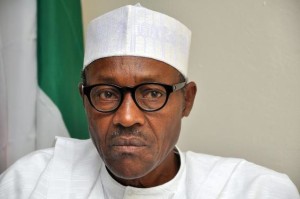Written by the Editorial board of The Guardian Newspaper
That the administration of President Muhammadu Buhari has banned the procurement and distribution of souvenirs at events organised or financed by the government is, no doubt, a welcome development. The events at which distribution of souvenirs such as bags, t-shirts, pens, writing pads, folders, and so on have been banned include conferences, seminars, workshops, symposia, retreats and assorted meetings and fora.
This is aimed at ensuring reduction in wasteful spending, promotion of efficiency and quantifiable savings for the country. Indeed, the overall objective is to reduce overhead cost in government operations.
It is one good step the government has taken and which all reasonable Nigerians believe will assist in the effective and efficient management of scarce resources, provided that total compliance by officials of ministries, departments, agencies and parastatals is achieved.
At a time like this when national revenue has significantly declined, when payment of contractors and salaries of government employees has become not only a challenge but a national embarrassment, it is a necessity that Nigerians review their ways of life and decide what desirable amendments can be made to survive. This is more exigent when considered that the country is also grappling with serious youth unemployment, inadequate and non-functional infrastructure, debts and an economy in recession. Any survival strategy that fails to take into account profiling expenditure with a view to eliminating unnecessary and needless costs will be missing a major plank upon which to build a solution. Nigeria needs to live within its means. That the government has identified costs associated with provision of souvenirs at some government functions for a ban is, therefore, commendable.
It is important to emphasise that the role played by conference bags, for example, has been eliminated by technology. The bags, were meant to enable participants carry conference papers. Today, a small computer flash drive can be used to copy all conference presentations. Furthermore, the papers presented can be forwarded to participants via their e-mail addresses. In effect, the need for bags at such events as conferences and seminars is, if anything, old-fashioned and a waste of funds.
Similar justification can be found for elimination of writing pads and pens. It is good enough that government is funding other costs associated with workshops and courses, such as tea/coffee breaks, lunch, and others but on what basis would a participant anchor a request on government to provide the writing materials? It is, therefore, obvious that the burden, if that is what it is, should rest on the invitee who accepts to participate. So, if government relieves itself of what its invitees are ordinarily in a position to provide for themselves, it can face other things more critical to the success of the events.
A hidden imperative from the ban is that it indirectly hits on the anti-corruption crusade. Purchase and distribution of various items, including souvenirs, have been veritable sources of corruption in government. That has been the basis of budget padding, over-invoicing and other forms of in-built corruption-supporting mechanisms. Thus, with this ban, a sure source of corruption has been dealt a blow, hopefully, permanently.
The ban should, however, create opportunities for the private sector to promote Nigerian-made products. Government should, therefore, encourage, at least small and medium scale enterprises (SMEs) to access the venues of its events free of charge to display their products to create awareness and generate purchases among participants and officials at such events. Any success recorded will not only encourage the SMEs but also empower them to produce more, leading to creation of employment opportunities. It may also lead to the initiation of exportation of the products, especially if foreign participants are involved in programmes.
Given the benefits that are derivable from the reported ban, state and local governments should emulate the steps of the Federal Government. There is hardly any doubt that they will find the cost management strategy helpful in freeing some funds for more important projects and the overall profile of their finances especially in cognisance of their subsisting inability to pay the emoluments of civil servants in many states.
In order to realise the intended policy objectives, government will need to embark on a number of things. First is to remove from the 2016 budget items that have to do with souvenirs in the areas that have been banned. In future, such items should have no budget lines and that will remove a ready source of temptation for government officials. The second is to block any other area that may be used by officials to, in any guise, procure banned souvenirs. Third, to secure the commitment of civil servants, they must be properly briefed on funds and policy compliance management.
The establishment of a fool-proof technology-based compliance monitoring and reporting system is a necessity. Finally, in view of the tedious route in implementing sanctions in the civil service, government should find expeditious ways of implementing sanctions that will deter officials from attempting to sabotage this new commendable directive.
(adsbygoogle = window.adsbygoogle || []).push({});


